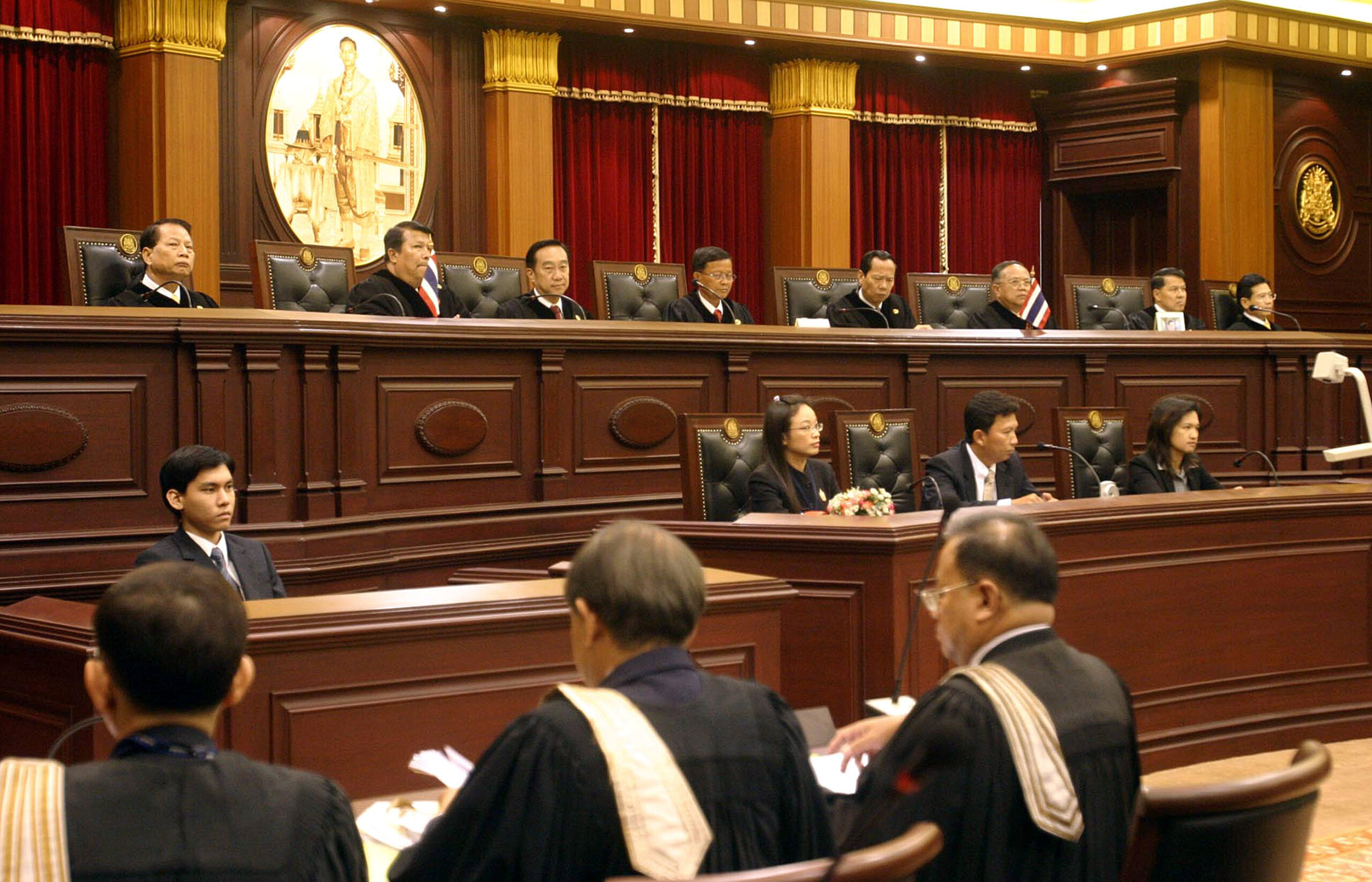Skirt or trousers? A choice that female lawyers in Thailand haven’t had for centuries.
“You better dress appropriately, with a skirt, next time you come to court,” a judge told Pornpen Khongkachonkiet, a prominent Thai human rights lawyer, more than once.
“I was admonished several times by judges when I wore pants in court,” said Pornpen, director of the Cross Cultural Foundation. “That never felt right to me.”
Now, for the first time in history, female lawyers can defend their cases in court wearing either a skirt or trousers.
The newfound freedom is a major departure from previous dress restrictions for women as mandated through two ethical codes, one of the Thai Bar Association and the other of the Lawyers Council, which had officially limited their attire to a neutral-coloured skirt and white-collared shirt.
While the Bar Association amended its code on Friday, 24 March, the Lawyers Council is still working on the changes. Both bodies are awaiting the final publication of the new legislation in the Royal Thai Government Gazette, expected before the end of March.

Thai lawyers are required to wear traditional long black robes in court, regardless of gender. While some women already occasionally wore trousers underneath the court robes, they could never feel truly at ease as they feared the judge would reprimand them – or even revoke or suspend their licences for up to three years.

But less than 24 hours after the Bar Association’s change, the group went against its own ethics revisions and instructed women to wear skirts for the upcoming bar exam.
The news immediately raised a controversy on the association’s Facebook page, where lawyers began questioning the effectiveness of the dress code update.
Groups that had pushed for the reform – mainly Nitihub, an open forum for public discussion, and the Human Rights Lawyers Association – called for consistent implementation of the new rule at all levels.
“We were delighted to see that our hard work had paid off, but we are now hoping that this will only be the starting point for other amendments,” said Peeyakorn Leankattava, social media admin at Nitihub.
The groups especially urged the Bar Association to modify the bar exam attire rules to align with the new regulations, and to eliminate gender-based discrimination in the legal field.
But while women can certainly celebrate this victory, Human Rights Lawyers Association Chairwoman Nadthasiri Bergman said that much has yet to change.
“What if I wanted to wear a red pair of pants? And what about the British colonial heritage of wearing court robes? Could men wear skirts?” Nadthasiri mused, thinking about other aspects of the dress code. “This achievement is just one tiny step towards equality, but we are not quite there yet.”
Although women in other professions have ditched such gendered dress codes decades ago, she said lawyers are still bound to outdated fashion rules that go against their freedoms, women’s rights and LGBTQ+ rights.

Nadthasiri said the ultimate goal is to completely remove any gender-based regulation from the ethical code and address lawyers by their title without differentiating them according to their biological sex.
Similarly, Dutsadee Dutsadeepanich, arbitrator and partner at ABER Law Group, strongly believes the dress code was long overdue for a change. She believes the move could help increase the lawyers’ confidence and performance in court.
“We have the right to choose,” Dutsadee said. “That‘s always been our fundamental human right.“
The interest in fighting for a change in dress code regulations grew over the past three years, when a broader coalition of lawyers and activists joined the cause, Dutsadee explained. Before that, she said only human rights lawyers were engaged on the issue.
In December 2021, the Human Rights Lawyers Association and Nitihub warned the Thai Bar Association they would bring the issue before the Central Administrative Court if the bar did not respond to a petition for a change to the dress code.
Prior to that, the Human Rights Lawyers had also submitted an open letter to the Supreme Court president’s office and the Thai Lawyers Council bringing the issue to their attention. The president’s office quickly dismissed it, which reiterated the obligation for lawyers to follow the Lawyers Council’s rules of etiquette and dress code.
Six months later, nothing had changed. In fact, things seemed to be worse, as a criminal court judge asked a nonbinary-gendered lawyer to stand up and lift their robe during an online court session. The judge harshly admonished them for wearing trousers underneath.
“It was simply repugnant to see such behaviour from a judge,” Nadthasiri said.
The lawyer immediately decided to bring the case before the independent committee that oversees the implementation of the 2015 Gender Equality Act across Thailand. The successful result of this case marked a key step towards today’s achievement. The Committee instructed the Bar Association and the Lawyers Council with a legally binding recommendation to amend the dress code for women in the Ethical Code to allow them to wear trousers in court.
The fight lasted more than two years, but in the end, the Bar Association implemented the recommendation of the committee and set the first wheel of change in motion.
“Our voice is louder now,” said Dutsadee. “Things will continue to change for [the] better.”


